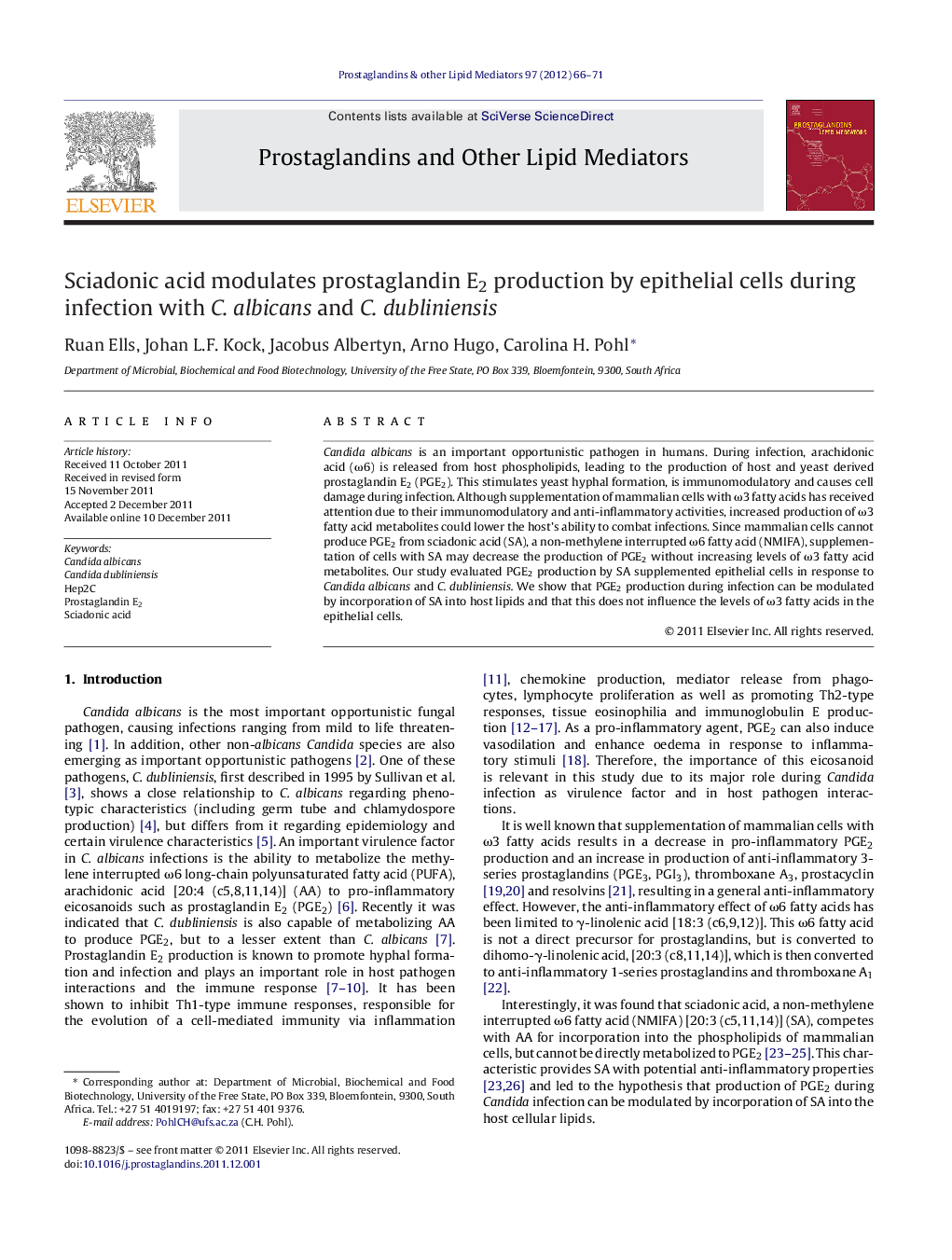| Article ID | Journal | Published Year | Pages | File Type |
|---|---|---|---|---|
| 2019646 | Prostaglandins & Other Lipid Mediators | 2012 | 6 Pages |
Candida albicans is an important opportunistic pathogen in humans. During infection, arachidonic acid (ω6) is released from host phospholipids, leading to the production of host and yeast derived prostaglandin E2 (PGE2). This stimulates yeast hyphal formation, is immunomodulatory and causes cell damage during infection. Although supplementation of mammalian cells with ω3 fatty acids has received attention due to their immunomodulatory and anti-inflammatory activities, increased production of ω3 fatty acid metabolites could lower the host's ability to combat infections. Since mammalian cells cannot produce PGE2 from sciadonic acid (SA), a non-methylene interrupted ω6 fatty acid (NMIFA), supplementation of cells with SA may decrease the production of PGE2 without increasing levels of ω3 fatty acid metabolites. Our study evaluated PGE2 production by SA supplemented epithelial cells in response to Candida albicans and C. dubliniensis. We show that PGE2 production during infection can be modulated by incorporation of SA into host lipids and that this does not influence the levels of ω3 fatty acids in the epithelial cells.
► Sciadonic acid is incorporated into cellular lipids of epithelial cells. ► Results in decrease in arachidonic acid in phospholipids, without affecting ω3 fatty acid levels. ► This reduces PGE2 production by epithelial cells during Candida infection. ► Sciadonic acid has potential anti-inflammatory properties.
